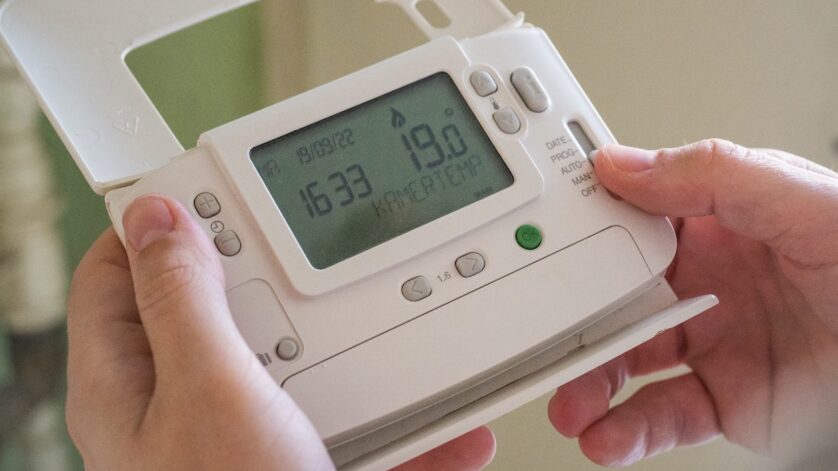Living in a student house, flat, apartment, apart from rent, whichever and whatever way you want to look at it your biggest costs are likely to be energy costs, fact.
With soaring energy prices it’s no wonder students and even the general public are struggling and looking for ways to help. The good news is there are a multitude of ways to reduce your energy costs which can help you to make big savings when your bill comes though.
Check out out top energy saving tips to help you save money on your bills, which as an added bonus also help you to be greener.
1. Shop Around for the Best Deals
There are a lots of energy companies offer deals, some of which are better than others. Use comparison websites like Money Supermarket and Quidco to check for special offers and deals. This is one of the best ways to save money as a student. Some student bank accounts also offer cashback on some regular payments like energy bills.
2. Avoid Pay-as-you-go Tariff Meters
Get a contract and pay via Direct Debit, rather than a meter, this is much cheaper. Lots of banks now also offer cash back, another way to get money back.
3. Check Insulation Options
Look around your house to find ways to make your house or flat more energy efficient. You could use draft excluders or bubblewrap to fill in holes or gaps which could let cold air in. If there are any obvious issues speak to your landlord.
4. Discuss Energy Use With Flatmates
Everyone needs to be on the same page and pulling in the right direction to work together to reduce energy consumption.
5. Shower at the Gym
If you have a gym membership, you could shower there instead.
6. Turn Off Unused Radiators
If at night you are for example just in your bedroom, do you really need to radiators on in other rooms?
7. Warp Up Warm
On tip for winter especially, wrap up warm and retrain your body heat. Maybe you won’t even need the heating on.
8. Only Boil What You Need
You will be astonished how much energy you are using if you for example fill the kettle to the top. Actually just using the amount of water you need will help the kettle to boil faster so you don’t have to wait as long, and also reduce the cost. Every little bit helps. View more advice how to save money on groceries.
9. Use Energy Saving Light Bulbs
Energy saving light bulbs are more of an expensive purchase than normal high bulbs, depending on the shape and wattage but you’ll find your energy costs dropping once you’re using them and the vast majority of brands also last years longer then ordinary ones you can buy. An extra tip, turn off lights when you’re not using them.
10. Bulk Cook
Cook food in bulk and freeze it for use later on in the week. The title speaks for itself on this subject really, this way you’ll also save yourself time in the future when you need a quick meal or don’t feel like cooking. You could also eat food which doesn’t require the hob or microwave e.g. sandwiches.
11. Turn Your TV Off Standby
Leaving your television on standby is a waste of energy and uses nearly as much as if it was on, turn it off when your not watching it, heck don’t watch TV and hit those revision books, its never to early.
12. Your Laptop Doesn’t Need to be on Constant Charge
When you’re sitting there with your laptop with it plugged into the electric, stop, take out the plug and turn it off from the socket, you’re wasting energy, wait till off peak times to charge your laptop, for example, night time, this cuts the cost of charging your laptop.
13. Charge Your Phone or Electronics Elsewhere
Reduce your electric bill by charging your phone, tablet or laptop at uni, in the library, in a cafe, at free charging points in shopping centres or at your work if you have a part time job. You could combine studying in the uni library with a charging trip, beneficial to your studies and bank balance.
14. Turn Down Your Thermostat
Reducing the temperature on your thermostat can help you greatly reduce your energy consumption and cost.
15. Have Cold Showers
Okay, not ideal, especially outside of summer, but using less hot water will reduce your bill. Or if you can’t bear the prospect of cold showers, try to be as quick as possible.
16. Washing Dishes
Washing the dishes with cold water helps lower the cost by not needing the builder to heat the water.
17. Wash Clothes on an Eco Setting
Most modern washing machines usually have different settings include eco and cold wash. Both of these are more energy efficient. View more laundry tips for students.
18. Recycle When You Can
Recycling doesn’t save you money but it does save the world so pack your paper, glass bottles and such and recycle.
If you follow these steps you’l find you’ll soon be reducing your energy use and bill, helping you to save money you can spend on other things. The suggestions we recommend may not look like big things when you look at them individually but when you sum them together, you’ll see.

